The Village Bicycle Project is changing lives in Africa. VBP is a non-profit corporation founded right here in Moscow, Idaho, by David Peckham in 1999, with the goal of making bikes affordable and sustainable for people in remote areas of some of the poorest places on Earth. In Africa, a bicycle can make all the difference. Riding a bike is four times faster than walking, the only choice for millions of Africans. Improved mobility is a key to reducing poverty, and in Africa, a bicycle can take a person from poverty to prosperity.
Meet Harriet …
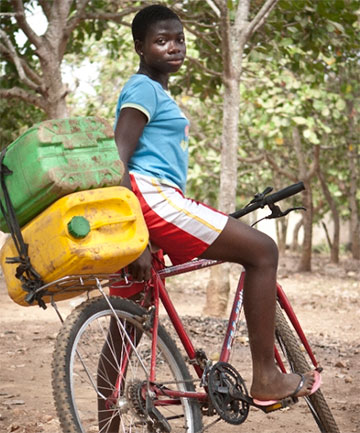
photo courtesy Village Bicycle Project
Harriet lives in Ghana’s Brong-Ahafo Region. She now rides her VBP bike to collect water from the village standpipe. Each of those jerry cans weighs 40 lbs when full, and previously, Harriet would carry each can on her head, one at a time. Now she can carry two on the back of her bicycle.
“I had long wanted to bring bikes to Africa,” says Peckham. “When I was a Peace Corps Volunteer in Gabon, it surprised me there were hardly any bikes. Bikes are so practical for moving people economically. They’re easy to work on, environmentally friendly, a transportation no-brainer in poor countries. I wanted to do something enduring, and knew that education and working within the market were key components of sustainability. I thought I’d try to send one shipping container, contributing a few hundred bikes, and try teaching a few dozen farmers a little about bike repair. I was also convinced that the best way to teach Africans was to engage African teachers, in this case, bike mechanics … We began working with Peace Corps Volunteers, scattered in small villages throughout Ghana. Gradually, word spread about the program that brought bikes and training to villages, and by 2007, VBP had reached all four corners of the country.”
To date:
- 85,000 bicycles have been shipped to Ghana and Sierra Leone
- 14,000 people have learned to repair and maintain their bikes
- 50,000 specialized bike tools have been distributed in 14 African countries
The Project makes a special effort to get bicycles to women. “In 2008-09, 1,150 girls and women received bikes in our programs, over one third of the total participants,” says Peckham. “However, we found that some women didn’t know how to ride and weren’t learning quickly. If a woman gets a bicycle and cannot ride it, she is unlikely to maintain control over the use of the bicycle.” So VBP developed a program in which a female leader teaches riding skills along with repair skills in a safe, encouraging setting.
Check out this 2-minute video about the Village Bicycle Project:
You can help!
1. Donate your bike.
2. Donate your time.
3. Donate your dollars:
- $30 provides a bike and repair training to people in Ghana or Sierra Leone
- $50 provides 6 sets of the 5 most popular bike tools to village mechanics
- $120 sponsors Learn-to-Ride programs for Sierra Leone schoolgirls
- $600 sponsors a one-day workshop with repair training for 20 people who receive discounted bikes
- $1,000 helps with everything we do at VBP, bringing bikes and bike repair skills to people who need transportation to improve their lives
- $6,000 pays the shipping costs for a container of 500 bikes
To find out how you can donate your bike, your time, or your money to support bicycles in Africa, visit VillageBicycleProject.org.
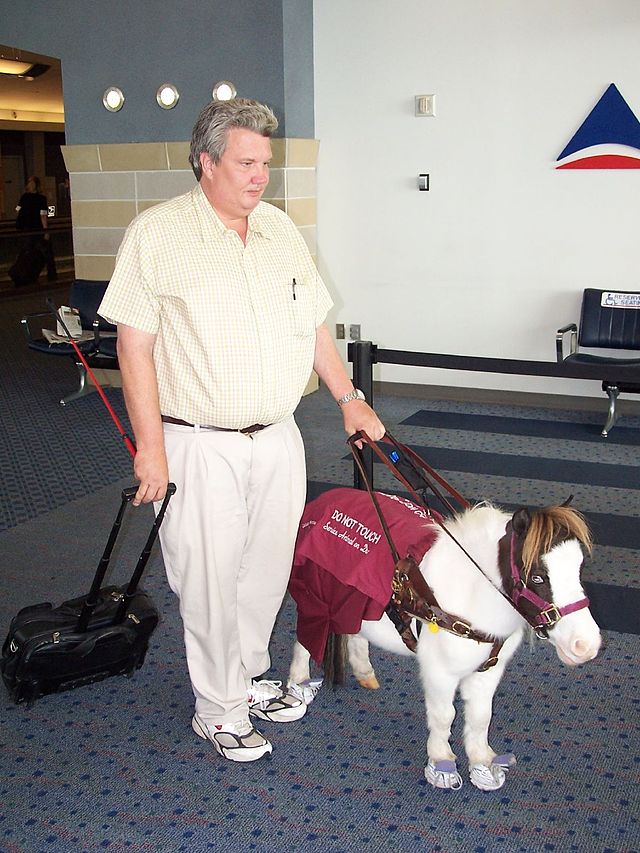
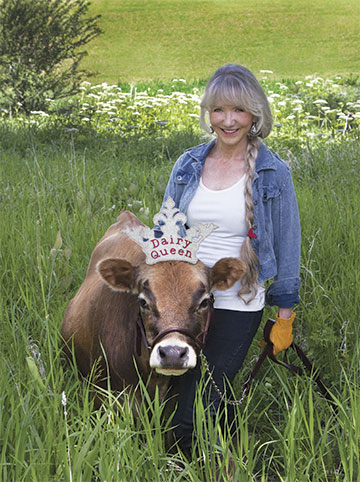














































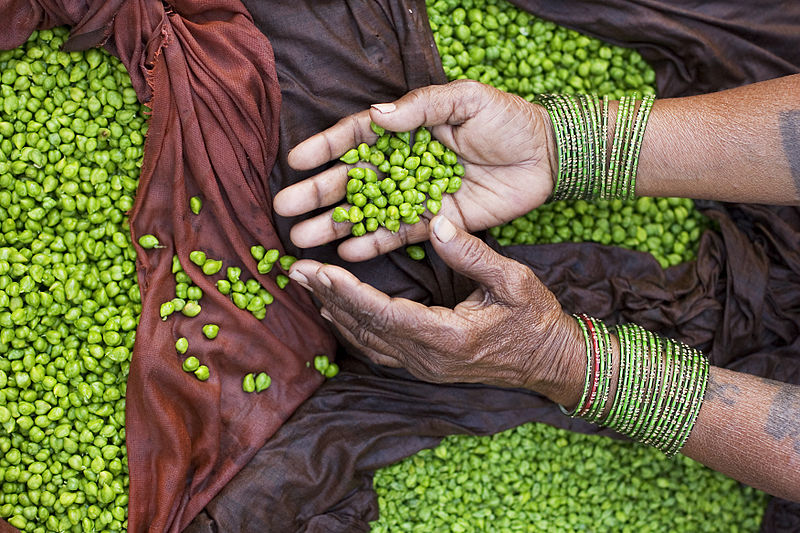

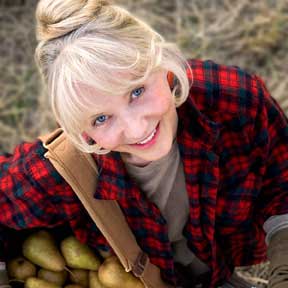
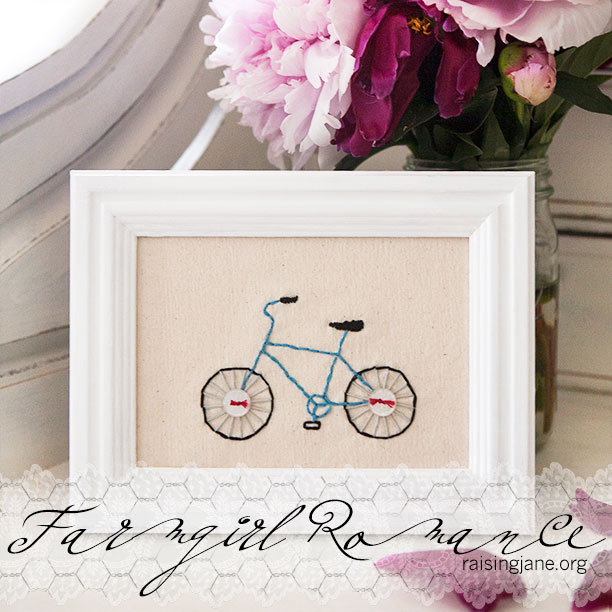



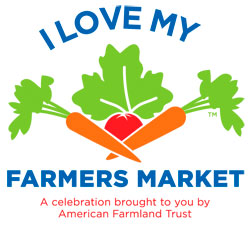
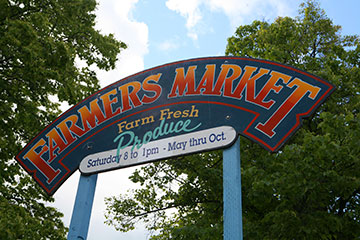
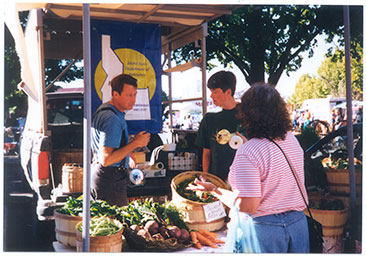








Look at your girl!! Maybe she could be trained . Possibly nobody has ever tried. I knew about the guide pony option and I think it is fantastic . Ponies are so smart anyway , why not give them a job? Those booties in her front hooves, are they the special ones made for guide ponies to wear in cities to protect their feet?
We have some new neighbors who are raising miniature horses. Two of the mares just recently had babies . . . CA-UTE! And it appears that a third one is in the “maternity ward”. I’m not sure but there may be 4 mares. Those babies are so teeny tiny!!!
CJ
P.S. Don’t know if they have a special purpose in mind for their horses.
I wonder if they work as well as a dog since they are prey animals and more prone to flight from fear than a predator animal like a dog? There is nothing I love more than the smell of a horse so if I were in need I can imagine this would be the choice for me!
I volunteered for some time for Lighthouse for the Blind in NYC ( and had a blind boyfriend in college years before that) and most of most of my people I read for didn’t use any guide animals. They felt the animals weren’t up to the crazy traffic and life in the city. This was some years ago and I bet the new assistance animals are WAY better trained now. Horses are super great and smart but they do “go” when they feel like it, so maybe that is built into their training? That they are more “potty trained” ? Just a thought.